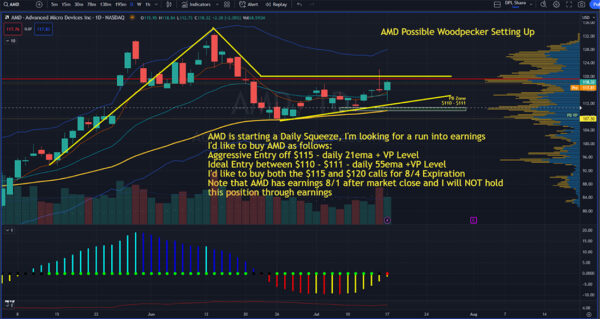The Impact of Hurricanes on the Stock Market: A Look at Key Sectors and Stocks
Hurricanes are among the most disruptive natural disasters, with far-reaching consequences for economies, communities, and financial markets. When hurricanes hit, particularly most recently with Hurricane Helene in the Gulf of Mexico, they can send ripples through a wide array of industries, from energy to construction. Let’s take a deeper dive into how these devastating weather events affect the stock market, specifically focusing on oil rigs in the Gulf and the industries and companies that drive recovery and rebuilding.
Oil Rigs in the Gulf: Impact on Energy Prices and Stocks
The Gulf of Mexico is a major hub for oil production, responsible for roughly 15% of the U.S. crude oil output. When hurricanes move through this region, oil rigs and refineries often shut down as a precaution. The disruption leads to reduced supply, which tends to drive up crude oil prices.
Oil and Gas Stocks
Companies such as ExxonMobil (XOM), Chevron (CVX), and BP (BP) are directly impacted by these shutdowns. Investors often see increased volatility in energy stocks during hurricane season, as fears of supply disruption can push prices higher. However, some of the gains may be offset by damage costs to infrastructure and the costs of restarting operations.
Refining companies like Valero Energy (VLO) and Phillips 66 (PSX) may also see impacts. Damage to refineries can result in reduced gasoline production, contributing to rising fuel prices. In some cases, refining companies may benefit from higher profit margins, depending on the spread between crude oil and refined products.
Construction and Infrastructure Stocks: The Rebuilding Effort
After a hurricane passes, the rebuilding process begins, often sparking increased demand for heavy machinery and construction materials. This is where stocks like Caterpillar (CAT) come into play.
Caterpillar (CAT), known for its construction equipment, tends to see increased demand for machinery used in clearing debris and rebuilding damaged infrastructure. Caterpillar’s stock may experience a boost as rebuilding efforts ramp up, especially in heavily affected areas requiring significant reconstruction.
Home Improvement Companies
Home improvement retailers like Home Depot (HD) and Lowe’s (LOW) are also likely to benefit. These companies provide essential supplies needed for repairs and rebuilding, from lumber to power tools. Following a hurricane, increased demand for such products often drives higher sales, and these companies typically experience a temporary bump in their stock prices.
Building Material Stocks
Companies such as Vulcan Materials (VMC) and Martin Marietta (MLM), which supply aggregates, gravel, and other construction materials, may also benefit. Hurricanes create a surge in demand for these materials, as roads, bridges, and buildings must be rebuilt or repaired.
Insurance Companies: A Mixed Impact
Hurricanes also have significant effects on insurance stocks. Property and casualty insurers like Allstate (ALL) and Travelers (TRV) often face large payouts after major storms, which can initially weigh on their stock prices. However, over time, these companies may recoup losses by raising premiums, leading to a recovery in stock performance. Additionally, reinsurance companies—those providing insurance to insurers—often see an uptick in activity following hurricanes, which can influence stocks like Munich Re and Swiss Re.
Retail and Consumer Impact: Short-Term Disruption, Long-Term Trends
Retail stocks are often affected as well, especially those with significant exposure in hurricane-prone areas. Grocery chains like Kroger (KR) or Walmart (WMT) often see a surge in sales before a hurricane as consumers stock up on essentials. However, the aftermath can lead to store closures and supply chain disruptions, impacting short-term revenue.
Utilities and Power Restoration
Utilities with significant infrastructure in affected areas, such as NextEra Energy (NEE) or Entergy (ETR), also face challenges. The cost of repairing damaged power lines and restoring electricity can be high, and their stocks may experience short-term pressure. However, the recovery and rebuilding often create opportunities for growth in grid modernization and storm-hardening projects, which can be positive in the long term.
Investment Strategy During Hurricane Season
Hurricane season can create both risks and opportunities for investors. On the one hand, disruptions in energy production can lead to volatility in oil and gas stocks. On the other, the rebuilding phase provides opportunities for companies in construction, materials, and home improvement.
Diversification is key for investors looking to manage risk during hurricane season. It might be wise to consider exposure to sectors that benefit from rebuilding, such as construction machinery and materials, while being cautious with stocks in sectors prone to heavy losses, like insurance.
Conclusion
Hurricanes have complex and far-reaching effects on the stock market, particularly impacting energy, construction, home improvement, and insurance stocks. Understanding these dynamics can help investors navigate the volatile period of hurricane season and potentially benefit from the cyclical opportunities that arise in the aftermath.
For example, oil prices typically rise during disruptions in the Gulf, providing a short-term boost to energy stocks. Meanwhile, construction giants like Caterpillar and home improvement retailers like Home Depot can capitalize on the rebuilding phase. By understanding these market movements, investors can make more informed decisions and mitigate risks during these turbulent times.
About Russ Amy
Hey there! I’m Russ Amy, here at IU I dive into all things money, tech, and occasionally, music, or other interests and how they relate to investments. Way back in 2008, I started exploring the world of investing when the financial scene was pretty rocky. It was a tough time to start, but it taught me loads about how to be smart with money and investments.
I’m into stocks, options, and the exciting world of cryptocurrencies. Plus, I can’t get enough of the latest tech gadgets and trends. I believe that staying updated with technology is key for anyone interested in making wise investment choices today.
Technology is changing our world by the minute, from blockchain revolutionizing how money moves around to artificial intelligence reshaping jobs. I think it’s crucial to keep up with these changes, or risk being left behind.
some even call me the Finpub God?



